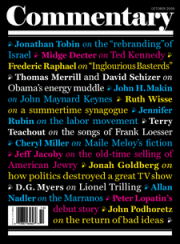In today’s Wall Street Journal, Northwestern law professor John McGinnis favorably reviews my new book:
American law schools wield more social influence than any other part of the American university. In ‘Schools for Misrule,’ Walter Olson offers a fine dissection of these strangely powerful institutions. One of his themes is that law professors serve the interests of the legal profession above all else; they seek to enlarge the scope of the law, creating more work for lawyers even as the changes themselves impose more costs on society.
Prof. McGinnis deftly conveys my theme about how embracing the cause of reformist legal critique helped serve law schools’ quest for academic respectability within the university, and he is particularly complimentary about the book’s discussion of law school clinics (“superbly describe[d]”). He is perfectly fair in observing that the book makes no attempt to evaluate some important recent developments such as the burgeoning of interest in empirical legal studies, even as I do devote considerable attention to other academic enthusiasms (like the ill-fated movement for race reparations) that he and I agree led to practical dead ends.
Most of Schools for Misrule is by intention backward-looking, an assessment of wrong turns and misguided enthusiasms that have led legal academia astray up to now. As Prof. McGinnis and I agree, things have been changing of late, sometimes in favorable ways. And that I hope provides much fodder for discussion as more observers join the debate.
P.S. Prof. Bainbridge has some kind things to say today as well. And I’ve got a general reaction roundup at Cato at Liberty, including those obsessively watched Amazon sales rankings, which are almost as bad a distraction for the author world as the U.S. News rankings are for the legal-academic. Yet more: Paul Caron/TaxProf, Instapundit, Above the Law, Kent Scheidegger/Crime and Consequences, Smallest Minority, Estate of Denial, Jeff Hadden/Detroit News, Memeorandum.

 In its new March issue, Commentary runs a lengthy excerpt from my new book Schools for Misrule: Legal Academia and an Overlawyered America. It’s available for subscribers or for individual purchase
In its new March issue, Commentary runs a lengthy excerpt from my new book Schools for Misrule: Legal Academia and an Overlawyered America. It’s available for subscribers or for individual purchase